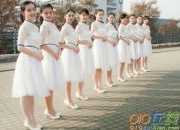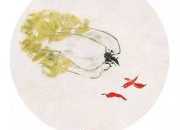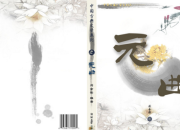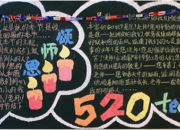有关“愚人节起源”的英语作文
时间:2021-08-31All Fool's Day, also known as April Fool's Day, is celebrated annually on the first day of April. It is a time for the traditional playing of pranks upon unsuspecting people...the victim of such a prank being called an April Fool.

The origins of this custom are somewhat uncertain, but may have initially been related to the arrival of Spring in late March, at which time Mother Nature is said to "fool" the human race with sudden and fickle changes in the weather...showers one minute and sunshine the next. The playing of practical jokes, however, dates back to Ancient Rome and such activities were an integral part of the Hilaria celebrations held on March 25, a celebration which would again appear to be associated with the coming of Spring and the Vernal Equinox, held to honor the resurrection of Attis, Roman God of Vegetation who was linked to the seasonal cycle. In England, an ancient legend states that April Fool's Day commemorates the fruitless mission of the Rook (or European Crow) which was sent out in search of land from Noah's flood-encircled ark.
It is generally accepted that the All Fool's Day tradition began in France during the Sixteenth Century, when the beginning of the New Year was observed on April 1 and was celebrated in much the same way as New Year is today with parties and dancing late into the night. At that time, the festivities ran for a week, beginning on March 25, and included the exchanging of gifts. In 1582, however, during the reign of King Charles IX, Pope Gregory introduced a revised calendar for the Christian world wherein the New Year fell on January 1. Since it took some time, possibly even years, for many people to even hear word of the change (communications being what they were in the Sixteenth Century) and since others obstinately refused to accept such reform or simply forgot, New Year's Day continued to be celebrated on the first day of April in many areas. Individuals who had accepted the dates of the new calendar played tricks on those who had not and referred to the unfortunate victims of such pranks as "April Fools," sending them on a "fool's errand" (an invitation to a non-existent party, for example) or attempting to make them believe that something which was true was actually false. Over time, this practice evolved into an annual tradition of April 1 prank-playing, eventually migrating to England and Scotland during the Eighteenth Century and thus, introduced to the American colonies by British and French settlers.
Some historians maintain that the development of All Fool's Day is linked to the medieval Feast of Asses or Feast of Fools, and the latter certainly was a most popular French festival. It does, however, seem unlikely that such a feast day was associated in any manner with the New Year in this instance, since such celebrations occurred at the time of the Feast of the Circumcision on January 1 which, during medieval times, was not the date of the New Year (under the Julian calendar, the New Year was celebrated in March). With the passage of time, it is far from easy to now distinguish between the Feast of Fools and the Feast of Asses, which may also have been celebrated in January. Many church dignitaries were honored on specific feast days during the Christmas season...the deacons on December 26 (Saint Stephen's Day), the priests on December 27 (Saint John's Day), the choristers and mass-servers on December 28 (Day of the Holy Innocents) and the sub-deacons on January 1 (Feast of the Circumcision). Later, the feast of the sub-deacons was replaced by the Guild of Fools, the customs and buffoonery of which then became associated with the sub-deacons' festivities and most likely had their origins in earlier Pagan customs, such as the Roman Saturnalia (celebrated in December), when slaves were granted temporary equality with their masters. During the Feast of Asses, the preacher impersonated the Hebrew prophets while arguing the Divinity of Christ. This sermon evolved into a drama, including actors and a procession which incorporated the riding of an ass (most probably symbolized by a hobby horse) into the church. This lavish spectacle was greatly appreciated and enjoyed by the parishioners...so much so, that it eventually developed separately until the festival became known as the Feast of Asses and, in its turn, gradually became absorbed into the Feast of Fools. The Feast of Fools was later outlawed by the Church in some areas due to the licentious behavior of the congregation during this time.
There is even speculation that All Fool's Day originated in the Hindu festival of Huli or Holi, celebrated in March to commemorate the defeat of evil. Originally lasting for five days, the modern version of this festival covers two days only. On the first day, a bonfire is lit and, on the second, people throw colored powder and water over each other. Holi celebrations are associated with the Hindu Demoness, Holika.
In many cultures, tradition dictates that the pranking period must expire at noon on April 1 and any jokes attempted after that hour will bring back luck to the perpetrator. In addition, any who fail to respond with a good humor to tricks played upon them are said to attract bad luck unto themselves. Such victims are, however, entitled to "turn the tables" after the hour of noon with the retort: "April Fool's gone past...and you're the biggest fool at last!" It should be noted that not all April Fool superstitions are negative. Males who are fooled by a pretty female, for example, are said to be fated to marry the girl...or at least enjoy a healthy friendship with her.
The style of April Fool's pranks has changed over the years. Sending unsuspecting parties on pointless errands was a particularly prized practical joke in the early history of the celebrations. Today, however, it is often a time of initiation rites into a club or group, especially by the adult population, and it is the children who appear to truly celebrate the day complete with its original sense of abandon. Otherwise, modern pranks tend to center more around bogus telephone calls and media-driven foolery. In sum, All Fool's Day is a "for fun only" observance...a time when nobody is expected to buy gifts, receive cards or spend money and there are no vacations from work or school. The primary force behind April Fool's Day jokes and pranks are that they should not be harmful but able to be enjoyed by everyone...especially the person upon whom the joke is played.











